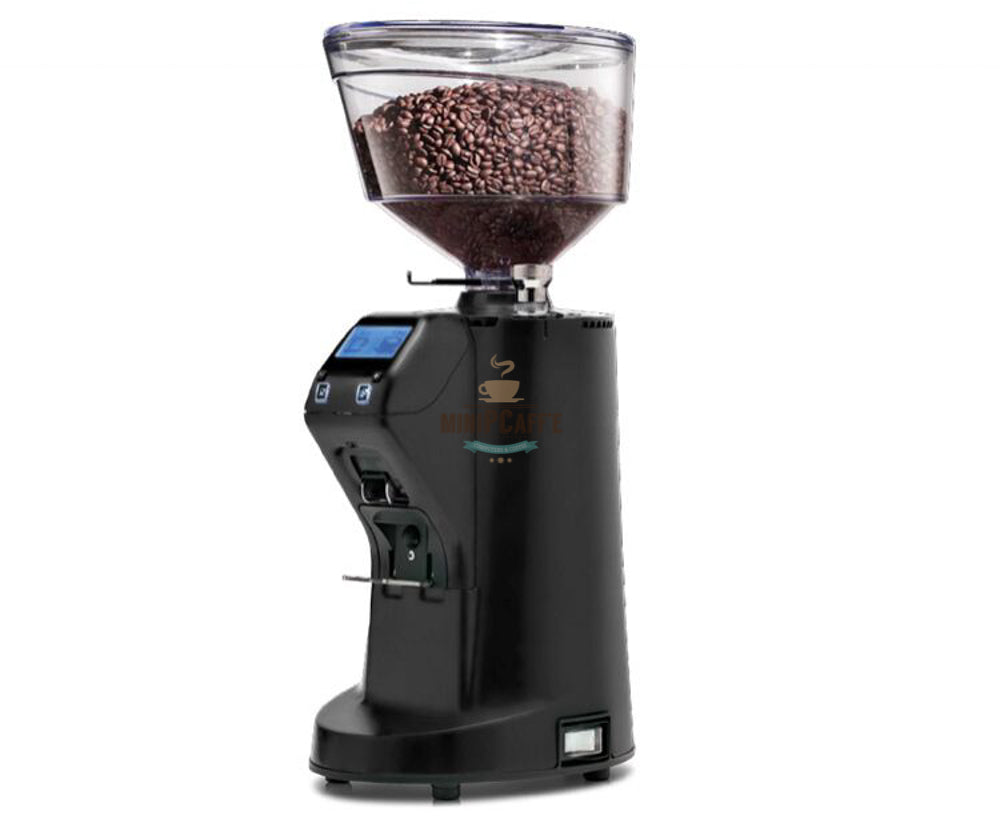Industrial Coffee Grinder Overview: Increase Efficiency and Quality
In the affordable landscape of coffee manufacturing, selecting the right commercial coffee grinder plays a critical role in improving both performance and item top quality. Recognizing the subtleties of different mill kinds and key attributes-- such as customizable grind settings and durable building-- can significantly influence the final flavor profile of the coffee. The optimization of the grinding procedure, paired with attentive upkeep, is crucial for sustaining performance over time. As we explore these critical aspects, it becomes apparent that the effects extend beyond plain devices selection, influencing overall company success in means that call for closer examination.
Understanding Mill Kinds
When choosing an industrial coffee grinder, recognizing the numerous types available is vital for enhancing both taste removal and operational efficiency. The two primary kinds of grinders are blade mills and burr mills.

Ultimately, choosing the right type of grinder is indispensable to maintaining high quality and performance in coffee production, making it crucial for companies to purchase top quality burr grinders for optimum outcomes.
Key Functions to Take Into Consideration
Selecting a commercial coffee mill requires cautious factor to consider of a number of key functions that can dramatically influence both performance and the general coffee experience. Among the primary elements to examine is the grinding mechanism. Burr grinders are normally favored over blade mills, as they provide a constant work size, which is vital for optimum extraction and flavor.
An additional vital feature is the mill's ability. A functional mill with numerous setups permits you to customize the grind size to different developing methods, improving the coffee's flavor account.
Examine the mill's noise level, specifically in a hectic coffee shop or production setting, where excessive sound can be disruptive. Spending in a mill that balances these attributes can considerably enhance both functional performance and the high quality of the coffee served.
Optimizing Grinding Process
To achieve the finest outcomes in coffee prep work, maximizing the grinding procedure is essential. The grind dimension dramatically affects removal, taste, and general high quality of the made coffee.


Furthermore, checking the grinding rate can optimize the process. Slower grinding typically creates much less warm, protecting delicate flavors and aromas. Conversely, faster grinding may produce extreme warm, negatively affecting the coffee's high quality.
Maintenance and Care Tips
Proper maintenance and care of commercial coffee mills are necessary for making certain optimum efficiency and durability. Routine cleaning is the structure of maintenance; residue buildup can affect taste and grinding performance. check this site out It is advisable to cleanse the mill after each use, cleaning down the exterior and getting rid of any kind of coffee premises from the burrs.
Furthermore, examine the grinding burrs for wear and tear. Plain burrs can endanger work consistency, so they should be changed as needed. Industrial Coffee Grinder. Regularly calibrating the grinder is additionally vital, as this preserves the desired grind size for numerous brewing approaches
Lubrication of moving parts ought to be performed according to the supplier's specs, as this reduces rubbing and lengthens the life of the tools. It is vital to utilize food-grade lubricants to make sure safety and compliance with health laws.
Lastly, maintain the grinder in a secure and dry atmosphere to stop corrosion and deterioration. By sticking to these maintenance and treatment pointers, operators can boost the performance of their commercial coffee grinders while making sure top quality result and extended operational life.
Roi Evaluation
Evaluating the return on investment (ROI) for industrial coffee mills is essential for services looking for to maximize their coffee manufacturing capabilities. A thorough ROI analysis assists figure out the economic stability of purchasing top notch mills, permitting businesses to weigh the initial prices against potential gains.
To conduct an extensive ROI analysis, companies should consider several vital elements. Assess the acquisition rate of the mill, consisting of setup and any type of required modifications to existing infrastructure. Next off, compute functional expenses, including energy intake, upkeep expenses, and labor performance enhancements. High-performance grinders frequently lead to lowered grinding time and boosted throughput, which can dramatically boost efficiency.
In addition, take into consideration the impact navigate here on item high quality. Industrial Coffee Grinder. Superior mills produce an even more regular work size, which can boost flavor accounts and customer complete satisfaction, inevitably driving sales. By enhancing the top quality of the end product, companies can justify higher rates, resulting in raised income
Verdict
In summary, a commercial coffee grinder plays an essential duty Get the facts in enhancing both performance and product top quality within coffee production. By choosing high-quality burr mills equipped with crucial features such as adjustable work setups and durable construction, companies can make sure optimum flavor extraction. Moreover, normal upkeep is essential for maintaining grinder efficiency and making best use of client satisfaction. Ultimately, the calculated investment in a trustworthy mill adds dramatically to boosted revenue and competition in the coffee sector.
In the competitive landscape of coffee production, picking the appropriate commercial coffee grinder plays an essential function in enhancing both efficiency and item top quality. The two key types of grinders are blade grinders and burr mills. Within the burr grinder category, there are flat burr mills and conical burr grinders, each with its advantages. Burr mills are usually favored over blade grinders, as they offer a consistent work size, which is essential for optimal removal and flavor.
In summary, a commercial coffee grinder plays an essential role in boosting both effectiveness and product quality within coffee manufacturing.